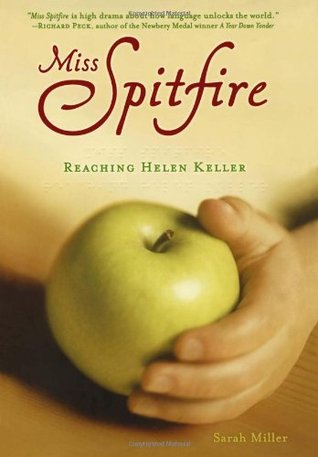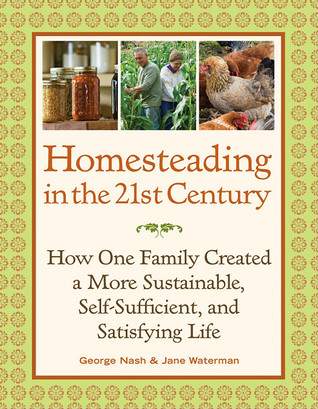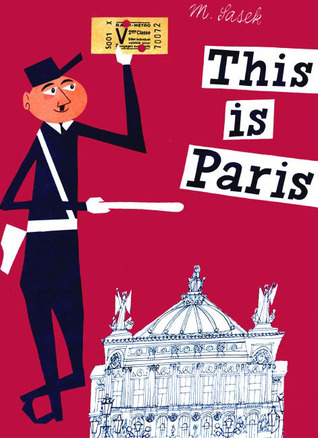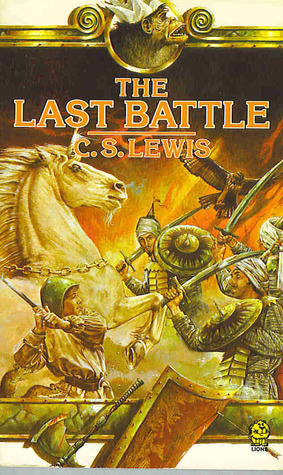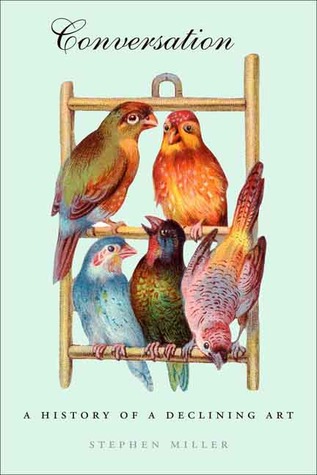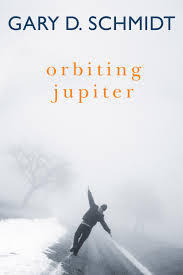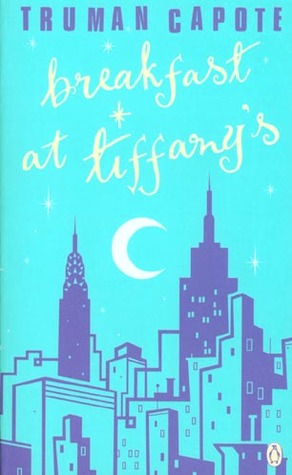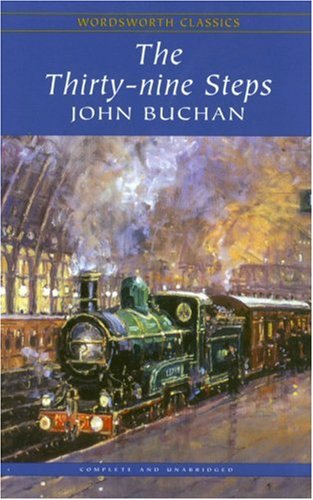Somewhere back in June, I fell off the book list wagon and didn't look back until now.
Whoa, Nellie.
I was dutifully working on reading books already on my shelf and interrupting those stacks periodically to throw in a book or three from our local library system when I obviously made the fatal mistake of buying more books both online and in real bookstores here and across the border this summer.
A couple of friends also brought me some interesting books to borrow because they obviously hate me.
In addition to all of these books, I dug out the books that Seth will be reading for his Grade 8 year and began to do some pre-reading.
It's a sickness, but I heard there is no cure. None at all.
So to keep my sanity, I'm just doing a bare-bones list. No reviews (I have enjoyed all of them), just the books I've actually finished this year.
Here they are in mostly the order they were read.
May
Carry on, Mr. Bowditch by Jean Lee Latham
The Sound of a Wild Snail Eating by Elisabeth Tova Bailey
Tree by Britta Teckentrup
June
Harry Potter and the Sorcerer's Stone by J.K. Rowling (first started this in June 2003, finally finished this after giving series to the son who was born in June 2003)
Worms by Bernard Friot, illustrated by Aurelie Guillerey
July
Climbing Parnassus by Tracy Lee Simmons
The Awakening of Miss Prim by Natalia Sanmartin Fenollera (second time, for a Mom's book club meeting)
August
Mere Motherhood by Cindy Rollins
Miss Spitfire by Sarah Miller (recommended by my friend Karla)
Harry Potter and the Chamber of Secrets by J.K. Rowling
A Latin-Centered Curriculum by Andrew A. Campbell (reread for lesson preparation)
September-November
Ivanhoe by Sir Walter Scott (a read aloud from Year 7 finally finished)
Because of Winn-Dixie by Kate Dicamillo (reread for book club)
The Phantom Tollbooth by Norton Juster (reread for book club)
Finding Wild by Megan Wagner Llyod, illustrated by Abigail Halpin
Teaching from Rest by Sarah MacKenzie
Once an Arafat Man by Tass Saada and Dean Merrill (recommended by my friend Janet)
Library Loans Mostly Finished
The Lifegiving Home by Sally and Sarah Clarkson
Shop Class as Soulcraft by Matthew B. Crawford
Homesteading in the 21st Century by George Nash and Jane Waterman
Showing posts with label books read in 2016. Show all posts
Showing posts with label books read in 2016. Show all posts
Tuesday, December 13, 2016
Tuesday, July 26, 2016
Wednesday, June 22, 2016
appreciating craftsmanship
'For a long while I have collected early American wooden tools-- those things that pioneer people people fashioned at home.
...
When I show my collection to young people, I am very careful to avoid saying, "See how old these things are." Instead I say, "See how carefully and beautifully people created things in those days. How aware these people were of the kinds of materials they worked with. How aware they were of the time in which they lived; everything is dated and signed. How richly awake they must have been to every moment of each day."'
~ Eric Sloane, Diary of an Early American Boy: Noah Blake 1805
Perhaps Sloane is romanticizing a bit about the daily life of the pioneer people, but I do think he captures the spirit of the people who were craftsmen; carving, molding, making, and passing skills on to their sons and daughters.
Labels:
books,
books read in 2016,
writing and literature
Friday, May 13, 2016
March/April Book List
Favorite Picture Books
Cathedral by David Macaulay
This appears to be the first David Macaulay book that we have read cover to cover. Over the years, I have borrowed some of his other titles from the library, but they have been met with a lackluster interest. This one coincides with our Middle Ages lesson work and helped add to our working understanding of architectural and building tools terminology.
This is Paris by Miroslav Sasek
Part of a series written and illustrated by Sasek back in the 60's, this is a wonderful introduction to the city of Paris, capturing many well-known tourist locations as well as quirky bits of the city. I found this secondhand and will be on the look-out for the many other cities that Sasek wrote about.
Chapter Books
The Last Battle by C.S. Lewis
We picked this book as our last Lost Tools of Writing essay project for this school year. We are working on Persuasive Essay Number Four. It had been several years since I had last read one of the books from this series, The Chronicles of Narnia, so I wondered if I would still enjoy reading it. While it would have been better to read them in the order that C.S. Lewis had written them prior to finishing this last in the series book, it still was a good culmination. I look forward to the ideas we discover as we work through the process of Invention.
Jack and Jill by Louisa May Alcott
I've lost track of how many Alcott novels I have read now. I think I have read most of them. This one languished on my shelf for quite a while first waiting-to-be-read, then waiting-to-be-read-some-more. Then I got some weird flu like symptoms and had to be in bed for the next 20 hours or so and it seemed like a good read for invalids. Sometimes, even loyal readers find Alcott's novels too pious or preachy. For the most part, I think her stories demonstrate characters who grow through adversity and they present ideas to inspire her readers.
Pigeon Post by Arthur Ransome
Carrier pigeons, mining expeditions, and metallurgy.
What will those children dream up next?
I'm not sure how many in the Swallows and Amazons series we have read now. Maybe four?
We wanted to start another one right away, but we have several read alouds on the go, so we have held off while we finish off some of those. But we likely will still be reading this series in high school. I hope that's okay. And then I get to re-read the earlier ones to my younger girls. Do not be discouraged by the sailing jargon, these books are worth fumbling through those detailed parts.
Nonfiction
Conversation: A History of a Declining Art by Stephen Miller
I think that while there are some interesting ideas collected through various personages and insights of history, this book is not likely to be very memorable nor instructive. I have borrowed it twice from the library to try to finish the long chapters. There may be a few passages worth copying out, but on the whole, there are other books that will capture your attention better. Carol at A Living Pencil recommends Reclaiming Conversation by Sherry Turkle.
The Tuscan Year: Life and Food in an Italian Valley by Elizabeth Romer
I went to visit a friend at her cottage last summer and finding myself able to relax next to some bookshelves for half an hour or more, plucked this one off the shelf and lounged around the first chapter.
Long story short, I borrowed it from the cottage shelves and have spent the fall and winter months dipping deliciously into this book until I finished it last month. And I actually read almost every single recipe. It is a living book, full of being and doing, eating and working. I have never traveled to Italy, but if families like this one still exist, I would love to stay with them.
Although I didn't read Elizabeth David's Classic collection cover to cover like I did with this one, her writing style reminded me many times of Romer's. They are not just talking about recipes, they are discussing lifestyles, food culture and so much more. And notably absent in both if I recall correctly are photographs or drawings or illustrations. Unheard of in today's cooking books. The writing must stand on its own, which makes it truly superb.
The Restoration of Christian Culture by John Senior
I have read several Catholic writers who I would recommend over this book by John Senior. (Anthony Esolen, Michael D. O'Brien, and Hillaire Belloc immediately come to mind.) I agree with Senior one hundred and twelve percent on the problems with families and the culture, I just cannot go along with his Catholicism which saturates his solutions and ideas. This is the first book I have read by him and it will likely be my last. I appreciate his message, but as a Protestant, I struggle with the heavy and bewildering details of Catholicism. I have other Catholic writers I appreciate much more.
Landscape With Dragons: The Battle for Your Child's Mind by Michael D. O'Brien
I really like the ideas in this nonfiction title by novelist Michael O'Brien. He speaks as a father, not as an academic. I appreciate that. I shared some early quotes from the book last month which give you a sense of the concerns he is addressing in this book.
Dumbing Us Down: The Hidden Curriculum of Compulsory Schooling by John Taylor Gatto
So finally I read a book by John Taylor Gatto. I liked the chapter on the difference between networks and communities so much that I photocopied the whole chapter before returning the book to the library. It reminded me so much of what I have been reading from the Christopher Alexander books on designing homes and communities. I have a lot more of reading to do, but I think I see some connections already. Maybe.
While I don't think I agree with his view on the correctness of the historical shift from the very conservative New England Congregational churches to very liberal Unitarian church, he obviously speaks as someone who understands what families and communities need and our modern ideas of school is not one of them. He inspired me to discontinue using the term 'homeschool' as much and as naturally as possible and instead use the term 'home-educate' more. I had already been trying to say 'lessons' more in my 'homeschool' posts rather than 'schoolwork', but 'home-educating' describes more accurately what I believe parents are called to do.
An Essay on the Restoration of Property by Hilaire Belloc
This is the first book by Hilaire Belloc I have read and although it is a very slim book, each chapter was a very full meal for me, many of them I only managed several pages at a time, underlining and re-reading previous pages. Belloc and Chesterton (although I haven't read the latter on this topic) both championed the idea of returning to the guild system of economics and production, with the main idea that economic freedom is ownership of personal property. Those who are work for a salary, wage-earners, are not economically free unless they own their own property. Belloc argues that tax reductions should be given to small, locally owned enterprises, while large corporations should be taxed the larger they grow since they make economic freedom for the smaller business owner less viable and produce only wage-slaves. I hope I am doing some justice to his ideas. If you want to read more, the Wikipedia entry on Distributism might be a good start. If you scroll down to the end of the entry, you may find some names of fellow adherents that you recognize.
The Collected Short Stories of Saki by H.H. Munro(Saki)
An online friend recommended these stories, so after finding several different copies at our local library, I dove in. Oh man, they are so good. Good humor, insightful comments on human behavior and interesting plots make for great short stories. I'm on the hunt for my own copies. If you like Wodehouse, Beverley Nichols or Angela Thirkell, try Saki.
Cover Her Face by P.D. James
I don't have much experience with the murder mystery genre in book format. Agatha Christie and Conan Doyle may be the only authors I can lay claim to, although I have watched a fair amount of mostly British murder mysteries. Carol at Journey and Destination who had a wonderful bookish blog is the one responsible for me trying this book. I really like reading stories set in the British Isles, but perhaps they just don't need to be murder mysteries. Miss Read, James Herriot, Gervase Phinn, George MacDonald, Wodehouse, Arthur Ransome. Good friends. Yes, I'm probably boring. How about another episode of Midsomer Murders?
Hannah Coulter by Wendell Berry
My first Wendell Berry read ever. I had no idea what to expect and I was drawn in by the first chapter by the voice of Hannah Coulter, the story's narrator. After I finished this novel, I began to read one of his nonfiction essay collections, The Art of the Commonplace, scanned the Table of Contents and picked "Feminism, the Body, and the Machine". A very good start. The ideas echoed Hannah Coulter. I plan to read his other novels and keep digging around in his nonfiction.
Cathedral by David Macaulay
This appears to be the first David Macaulay book that we have read cover to cover. Over the years, I have borrowed some of his other titles from the library, but they have been met with a lackluster interest. This one coincides with our Middle Ages lesson work and helped add to our working understanding of architectural and building tools terminology.
Part of a series written and illustrated by Sasek back in the 60's, this is a wonderful introduction to the city of Paris, capturing many well-known tourist locations as well as quirky bits of the city. I found this secondhand and will be on the look-out for the many other cities that Sasek wrote about.
Chapter Books
The Last Battle by C.S. Lewis
We picked this book as our last Lost Tools of Writing essay project for this school year. We are working on Persuasive Essay Number Four. It had been several years since I had last read one of the books from this series, The Chronicles of Narnia, so I wondered if I would still enjoy reading it. While it would have been better to read them in the order that C.S. Lewis had written them prior to finishing this last in the series book, it still was a good culmination. I look forward to the ideas we discover as we work through the process of Invention.
Jack and Jill by Louisa May Alcott
I've lost track of how many Alcott novels I have read now. I think I have read most of them. This one languished on my shelf for quite a while first waiting-to-be-read, then waiting-to-be-read-some-more. Then I got some weird flu like symptoms and had to be in bed for the next 20 hours or so and it seemed like a good read for invalids. Sometimes, even loyal readers find Alcott's novels too pious or preachy. For the most part, I think her stories demonstrate characters who grow through adversity and they present ideas to inspire her readers.
Carrier pigeons, mining expeditions, and metallurgy.
What will those children dream up next?
I'm not sure how many in the Swallows and Amazons series we have read now. Maybe four?
We wanted to start another one right away, but we have several read alouds on the go, so we have held off while we finish off some of those. But we likely will still be reading this series in high school. I hope that's okay. And then I get to re-read the earlier ones to my younger girls. Do not be discouraged by the sailing jargon, these books are worth fumbling through those detailed parts.
Nonfiction
Conversation: A History of a Declining Art by Stephen Miller
I think that while there are some interesting ideas collected through various personages and insights of history, this book is not likely to be very memorable nor instructive. I have borrowed it twice from the library to try to finish the long chapters. There may be a few passages worth copying out, but on the whole, there are other books that will capture your attention better. Carol at A Living Pencil recommends Reclaiming Conversation by Sherry Turkle.
The Tuscan Year: Life and Food in an Italian Valley by Elizabeth Romer
I went to visit a friend at her cottage last summer and finding myself able to relax next to some bookshelves for half an hour or more, plucked this one off the shelf and lounged around the first chapter.
Long story short, I borrowed it from the cottage shelves and have spent the fall and winter months dipping deliciously into this book until I finished it last month. And I actually read almost every single recipe. It is a living book, full of being and doing, eating and working. I have never traveled to Italy, but if families like this one still exist, I would love to stay with them.
Although I didn't read Elizabeth David's Classic collection cover to cover like I did with this one, her writing style reminded me many times of Romer's. They are not just talking about recipes, they are discussing lifestyles, food culture and so much more. And notably absent in both if I recall correctly are photographs or drawings or illustrations. Unheard of in today's cooking books. The writing must stand on its own, which makes it truly superb.
The Restoration of Christian Culture by John Senior
I have read several Catholic writers who I would recommend over this book by John Senior. (Anthony Esolen, Michael D. O'Brien, and Hillaire Belloc immediately come to mind.) I agree with Senior one hundred and twelve percent on the problems with families and the culture, I just cannot go along with his Catholicism which saturates his solutions and ideas. This is the first book I have read by him and it will likely be my last. I appreciate his message, but as a Protestant, I struggle with the heavy and bewildering details of Catholicism. I have other Catholic writers I appreciate much more.
Landscape With Dragons: The Battle for Your Child's Mind by Michael D. O'Brien
I really like the ideas in this nonfiction title by novelist Michael O'Brien. He speaks as a father, not as an academic. I appreciate that. I shared some early quotes from the book last month which give you a sense of the concerns he is addressing in this book.
Dumbing Us Down: The Hidden Curriculum of Compulsory Schooling by John Taylor Gatto
So finally I read a book by John Taylor Gatto. I liked the chapter on the difference between networks and communities so much that I photocopied the whole chapter before returning the book to the library. It reminded me so much of what I have been reading from the Christopher Alexander books on designing homes and communities. I have a lot more of reading to do, but I think I see some connections already. Maybe.
While I don't think I agree with his view on the correctness of the historical shift from the very conservative New England Congregational churches to very liberal Unitarian church, he obviously speaks as someone who understands what families and communities need and our modern ideas of school is not one of them. He inspired me to discontinue using the term 'homeschool' as much and as naturally as possible and instead use the term 'home-educate' more. I had already been trying to say 'lessons' more in my 'homeschool' posts rather than 'schoolwork', but 'home-educating' describes more accurately what I believe parents are called to do.
An Essay on the Restoration of Property by Hilaire Belloc
This is the first book by Hilaire Belloc I have read and although it is a very slim book, each chapter was a very full meal for me, many of them I only managed several pages at a time, underlining and re-reading previous pages. Belloc and Chesterton (although I haven't read the latter on this topic) both championed the idea of returning to the guild system of economics and production, with the main idea that economic freedom is ownership of personal property. Those who are work for a salary, wage-earners, are not economically free unless they own their own property. Belloc argues that tax reductions should be given to small, locally owned enterprises, while large corporations should be taxed the larger they grow since they make economic freedom for the smaller business owner less viable and produce only wage-slaves. I hope I am doing some justice to his ideas. If you want to read more, the Wikipedia entry on Distributism might be a good start. If you scroll down to the end of the entry, you may find some names of fellow adherents that you recognize.
Classics and Other Such Books
An online friend recommended these stories, so after finding several different copies at our local library, I dove in. Oh man, they are so good. Good humor, insightful comments on human behavior and interesting plots make for great short stories. I'm on the hunt for my own copies. If you like Wodehouse, Beverley Nichols or Angela Thirkell, try Saki.
Cover Her Face by P.D. James
I don't have much experience with the murder mystery genre in book format. Agatha Christie and Conan Doyle may be the only authors I can lay claim to, although I have watched a fair amount of mostly British murder mysteries. Carol at Journey and Destination who had a wonderful bookish blog is the one responsible for me trying this book. I really like reading stories set in the British Isles, but perhaps they just don't need to be murder mysteries. Miss Read, James Herriot, Gervase Phinn, George MacDonald, Wodehouse, Arthur Ransome. Good friends. Yes, I'm probably boring. How about another episode of Midsomer Murders?
Hannah Coulter by Wendell Berry
My first Wendell Berry read ever. I had no idea what to expect and I was drawn in by the first chapter by the voice of Hannah Coulter, the story's narrator. After I finished this novel, I began to read one of his nonfiction essay collections, The Art of the Commonplace, scanned the Table of Contents and picked "Feminism, the Body, and the Machine". A very good start. The ideas echoed Hannah Coulter. I plan to read his other novels and keep digging around in his nonfiction.
Labels:
books,
books read in 2016,
brief book reviews
Wednesday, April 06, 2016
A Landscape With Dragons
"Yes", she said, getting really excited. "And that means we'll never run out of good books to read. There's always a new story."
Yes, I thought, always a new story, but really a very old story. It sounds simple: A king made a beautiful kingdom, and he filled it with creatures whom he loved. A dragon crept out of the darkness and sought to devour an entire world. A brave man faced him, and the dragon slew the man. And that man was God, but nobody knew that until the man came back to life. Then he took the weapon with which the dragon had killed him, and he battled the dragon. The dragon hated the Cross and feared the way the man changed it into a thing that could defeat him and his legions. God is the maker of this one great story, which contains all the billions of lesser stories, and he will decide how the tale ends. This story really happened, and parts of it are still happening and some of the most terrific parts are still to come. If you have the heart of a child, you will know that this is true. And you will know that a certain dragon has a persistent desire to devour our children.
...
But in Western civilization, founded on the clearer vision of Judaism and flowering in the fuller revelation of the New Testament, the symbol of the dragon sharpened into focus, assuming its definitive identity. Thus, in the literature of the West dragons have been regarded as powerful agents of evil, guardians of stolen treasure hoards, destroyers of the good and the weak (children, maidens, small idyllic kingdoms), and, on the spiritual level, a personification of Satan prowling through the world seeing the ruin of souls.
...
The dragon that takes no form is the worst kind, and I would rather it not prowl around the neighborhood I call home. Most of all I do not want it infesting my children's minds. I do not want them befriending it, either, nor do I want it calming their instinctive good fears and perhaps in the process taking possession of their very selves.
...
It is the real dragon against which I want my children armed. Their interior life has need of tales that inform them of their danger and instruct them at deep levels about the tactics of their enemy. It is good that our children fear dragons, for in fearing, they can learn to overcome fear with courage. Dragons cannot be tamed, and it is fatal to enter into dialogue with them. The old stories have taught our children this.
~ Michael D. O'Brien, A Landscape with Dragons: The Battle for Your Child's Mind
I started reading this book several years ago, but did not finish it. In my efforts to read the books that are on my shelf, I restarted this book earlier this week. I know I may not agree with everything he says or the way he says it, but on the whole, I believe it is an excellent book.
Labels:
books,
books read in 2016,
parenting,
writing and literature
Tuesday, March 22, 2016
February Book List
Picture Books
Up in the Garden, Down in the Dirt by Kate Messner, illustrated by Christopher Silas Neal
A couple of years ago, I found her winter book and was delighted. This is a seasonal sequel and contains the same attention to nature detail as her other books, although without the strong environmental themes found in her other titles like Marty McGuire. Digging in the dirt for any reason is not something most children resist, understanding how the dirt, the plants and the humans interact together is something everyone should experience.
Chapter Books
Orbiting Jupiter by Gary D. Schmidt
Bonnie over at Being Transformed, a wonderful place to find refreshment of all varieties, recommended this young adult novel, although when I requested it from the library, I didn't realize it was for youth. I read it in one evening and was moved by the profoundness of such a full story told in simple sentences, rich with ideas. It is deals with more mature subject matter so I would not hand this over to elementary age children, but certain preteen and older can appreciate the story's themes.
Classics and Other Such Books
Breakfast at Tiffany's by Truman Capote
I feel like I should have something insightful to say about this well known book-turned-movie, but like other post-modern novels, it leaves me thinking, so what does the author want to the take-away to be?
I think I did watch the Audrey Hepburn movie once, but since I can't remember anything about it, I assume the movie did not give me any help when I finally read the book. According to the reviews on Goodreads, I assume it is just as well, the movie didn't really capture the book. Also on the Goodreads reviews, men often rated the book and it's main character Holly Golightly very differently than the women reviewers. I don't have statistical numbers, I just was refreshingly surprised that so many guys did not care for her character. The narrator of the story is nameless and bland, forgettable as Capote likely intended, for Holly is the character on which the story turns. This one goes in the well, at least I read it pile.
The Thirty-Nine Steps by John Buchan
So I have three other Buchan books, but I was waiting to find this title before I read any of them. I will be honest, I kind of thought it would be better than it was. I've heard George Grant talk about the contributions Buchan (and Arthur Quiller-Couch) made to literature (which I highly recommend) so I was expecting to be thrilled by the story and writing. Sad to say, I wasn't and I made myself finish it because it was a very short novel and because I thought I should give it all the way to the end. There really is no character growth or reason for character admiration in the story, it just reads like an episode of 24 if it was made into a book series. I hate to say this but by the time I was more than half-way through I was thinking of how it reminded me of Dan Brown's The Da Vinci Code (no, I'm not linking to it) which I read back when everyone else was reading it. Lots of action, then lots more action, a bit of dialogue, both external and internal, then lots more action. Oh well, you can't win them all. Perhaps if I read the other two in the series, I will have a change of heart. I don't like to let other readers and recommenders down.
Up in the Garden, Down in the Dirt by Kate Messner, illustrated by Christopher Silas Neal
A couple of years ago, I found her winter book and was delighted. This is a seasonal sequel and contains the same attention to nature detail as her other books, although without the strong environmental themes found in her other titles like Marty McGuire. Digging in the dirt for any reason is not something most children resist, understanding how the dirt, the plants and the humans interact together is something everyone should experience.
Chapter Books
Orbiting Jupiter by Gary D. Schmidt
Bonnie over at Being Transformed, a wonderful place to find refreshment of all varieties, recommended this young adult novel, although when I requested it from the library, I didn't realize it was for youth. I read it in one evening and was moved by the profoundness of such a full story told in simple sentences, rich with ideas. It is deals with more mature subject matter so I would not hand this over to elementary age children, but certain preteen and older can appreciate the story's themes.
Classics and Other Such Books
Breakfast at Tiffany's by Truman Capote
I feel like I should have something insightful to say about this well known book-turned-movie, but like other post-modern novels, it leaves me thinking, so what does the author want to the take-away to be?
I think I did watch the Audrey Hepburn movie once, but since I can't remember anything about it, I assume the movie did not give me any help when I finally read the book. According to the reviews on Goodreads, I assume it is just as well, the movie didn't really capture the book. Also on the Goodreads reviews, men often rated the book and it's main character Holly Golightly very differently than the women reviewers. I don't have statistical numbers, I just was refreshingly surprised that so many guys did not care for her character. The narrator of the story is nameless and bland, forgettable as Capote likely intended, for Holly is the character on which the story turns. This one goes in the well, at least I read it pile.
The Thirty-Nine Steps by John Buchan
So I have three other Buchan books, but I was waiting to find this title before I read any of them. I will be honest, I kind of thought it would be better than it was. I've heard George Grant talk about the contributions Buchan (and Arthur Quiller-Couch) made to literature (which I highly recommend) so I was expecting to be thrilled by the story and writing. Sad to say, I wasn't and I made myself finish it because it was a very short novel and because I thought I should give it all the way to the end. There really is no character growth or reason for character admiration in the story, it just reads like an episode of 24 if it was made into a book series. I hate to say this but by the time I was more than half-way through I was thinking of how it reminded me of Dan Brown's The Da Vinci Code (no, I'm not linking to it) which I read back when everyone else was reading it. Lots of action, then lots more action, a bit of dialogue, both external and internal, then lots more action. Oh well, you can't win them all. Perhaps if I read the other two in the series, I will have a change of heart. I don't like to let other readers and recommenders down.
Labels:
books,
books read in 2016,
brief book reviews
Tuesday, February 09, 2016
two essays, one story
As I mentioned last month, we have been working on persuasive essay writing through a book discussion on The Phantom of the Opera. This was our first time encountering this story, even though the musical and stage productions have made this story familiar to many.
After working through several drafts, both handwritten and typed, we reached a consensus on my son's final draft. We both worked on paper through the various steps of Invention, Arrangement and Elocution for this third essay. It is a process that while is still new to us in some ways, is yielding such good insights into the stories that we continue to persevere in following the instructions set out in The Lost Tools of Writing.
After Seth's final draft was secured, I thought I might take my notes and attempt to write an essay taking the other side of our issue. I was more convinced in the position Seth chose, but thought it would be good for me to try for a different position using the same issue we had chosen.
So I leave you with our two essays and if you are familiar with the story, ask you to consider where you fall on the issue presented.
ESSAY 3: THE PHANTOM OF THE OPERA Feb.2, 2016
Have you ever seen a ghost or an angel? Have you ever welcomed a stranger to your house?
These questions apply to why I believe that Christine Daae should not have welcomed the Angel of Music in The Phantom of the Opera. She was not cautious, was not careful of her possessions, and did not consider what the Angel said.
Christine should not have welcomed the Angel because she was lured by Erik’s singing. She was so caught up in his singing that she did not ask herself who or what was singing. She did not know the Angel’s plans for her, she should have asked why he was here. She could not see Erik, she should have asked other singers or musicians if they had seen him.
Christine should not have welcomed the Angel because she should not have given her soul to a stranger. Christine said she was dead since she gave her soul to him. The Angel was a curse because he caused pain and suffering to Christine.
Christine should not have welcomed the Angel because Erik may have been a demon-possessed man. He lived under the opera house which signifies that he may have come from the Underworld. The Angel was a fictional figure who was not supposed to be real.
I believe that Christine Daae should not have welcomed the Angel of Music: She was not cautious, was not careful of her possessions, and did not consider what the Angel said.
The Phantom of the Opera February 5, 2016
What is the cost of love? If there is no cost, is it truly love? Through these questions, I seek to explore the idea that Christine Daae in The Phantom of the Opera rightly introduced Erik, the Angel of Music into her life for the following three reasons: it promoted her singing career, it provided a connection with her dead family, and it caused her to have compassion for suffering.
The Angel of Music promoted Christine’s singing career by providing her with fame and status following an enhancement of her singing talent. He provided her with a personal mentoring experience that allowed her to become successful. And lastly, he provided her with an even greater ability to do what she loved, singing.
The Angel of Music provided Christine with a connection to her dead mother and father. He was a companion who knew both the loves of her past and the hopes for her future. His arrival was the fulfillment of a promise made to her by her father when she was yet a young girl.
By introducing the Angel of Music into her life, Christine was given the opportunity to have compassion for the suffering of another. She was able to give the love and affection that Erik’s mother had refused him. By agreeing to marry him, she showed sacrificial love to both Raoul, her devoted lover and to Erik, her unintended lover when they both needed her most. She promised to attend to the details of Erik’s burial upon his death as a final act of compassion to him.
While Christine’s acts of love to the Angel of Music may have cost her turmoil and suffering, she rightly introduced him into her life because it promoted her singing career, provided a connection with her dead family and caused her to have compassion for the suffering of others.
Monday, January 25, 2016
Book Discussion gives Mom a Full Heart
That post title is quite the headline. And since the essay is not written yet, perhaps you may wonder if the cart is before the horse by posting like this. Perhaps. But if the richness is displayed in the essay, surely it can be found in the thinking processes that produced the essay. So while my mind is still reeling from the mining expedition we just completed, (a metaphor brazenly stolen from the Circe Institute's writing course) let me just share some thoughts on the process thus far.
When I read a book, in particular a well known classic, I always feel a bit intimidated both during-and-after my reading that I will miss or have missed the universal ideas behind the story. This happened again when I read The Phantom of the Opera one evening last week after my oldest, Seth picked it out, read it and wanted to talk about it all in the span of about two hours. Alrighty then.
I read it and was, for lack of a more dignified literary term, weirded out by the story. I had no idea what the point of such a strange tale was about. None.
The following Monday morning came around and Seth suggested we use this novel as the next essay in our Lost Tools of Writing (LTOW) course. Gulp. Well, sure, I admired his enthusiasm.
So we started off with a story chart which is what we have done for many of our books and then we launched ourselves into some should questions. We also have done this many times before. That is when my brain really started to think. We generated some excellent should questions and then I let Seth pick the one he wanted to make as the Issue of the essay. He happened to pick one that I had written, which I thought was pretty darn good.
The next time we pulled out our papers, we started coming up with reasons from the story that we thought could either answer the 'should' question in the affirmative or the negative. And some things we thought, didn't go in either, so they just went in their own column. (All of this is taught in the LTOW course.) And we were both pleased with the kinds of ideas and content we generated about the story.
But it was the next step of using the Five Common Topics which I believe have their root in Aristotle that gave us so much more material to think about. You are asking questions of Comparison, Definition, Circumstance, Relation and Testimony. If you are wondering what those Common Topics look like when you are asking questions, this link will give you some ideas of how to ask those questions. That may look overwhelming, but the LTOW breaks it into very manageable parts with video instruction by Andrew Kern and others to walk you through these steps.
The amount of thinking we have now done about this story is amazing. We even discussed how this story is like a very well known fairy tale that we had all read together in the fall, Beauty and the Beast. That was a very good moment.
Essay writing is not all mountain-top experiences (enter today's work on Parallelism as Exhibit A), but we discussed how this process gives us a greater admiration for the authors of the books we enjoy when we see how much work is involved in crafting good writing.
This type of thinking is equally demanding, yet equally satisfying. I hope our finished essays show both in full measure.
Saturday, January 02, 2016
Latin, natural history and humor
"Does the general public need to learn the Latin names of fungi, plants and animals? Not usually. Anyone asking their grocer for some Apium graveolens (celery) and a couple of pounds of Solanum tuberosum (potatoes) would be marked down immediately as a troublemaker.
If your interest is natural history, it is a different matter. Your enjoyment and understanding will be greatly enhanced by learning the names of the organisms that you discover on your travels. And it does make you sound considerably more authoritative when speaking about them to others. Ignoring the comment by the American writer Brander Matthews that 'a gentleman need not know Latin, but he should have at least forgotten it', you do not need to be familiar with the language in order to understand Latin names. They start to permeate the mind as you learn them and learn how their authors created them."
...
"As the unfortunate wren would testify, organisms are not in a position to choose their own names - edulis (edible) and deliciosus would not be anyone's first choice. Neither does any living thing come with a label attached. Names are the work of men, and many seem designed to amuse or impress as much as to inform."
~ John Wright, The Naming of the Shrew: A Curious History of Latin Names
I know of the author, John Wright, from his mushroom foraging on River Cottage episodes. As a further aside, this is a great show and you can watch the older and newer ones on YouTube. It may or may not be slightly addicting.
I am only about fifteen pages into this book and I have been enjoying his knowledge and experience deftly intertwined with his wit and humor.
And on a different note: Happy New Year! Two days in and I'm thankful for another year to be in God's kingdom, gainfully employed in the life He has given me. With so many like-minded readers and thinkers out there, it is encouraging to find such community. January is a gift of fresh starts and renewed passions. Here we go!
Subscribe to:
Posts (Atom)



